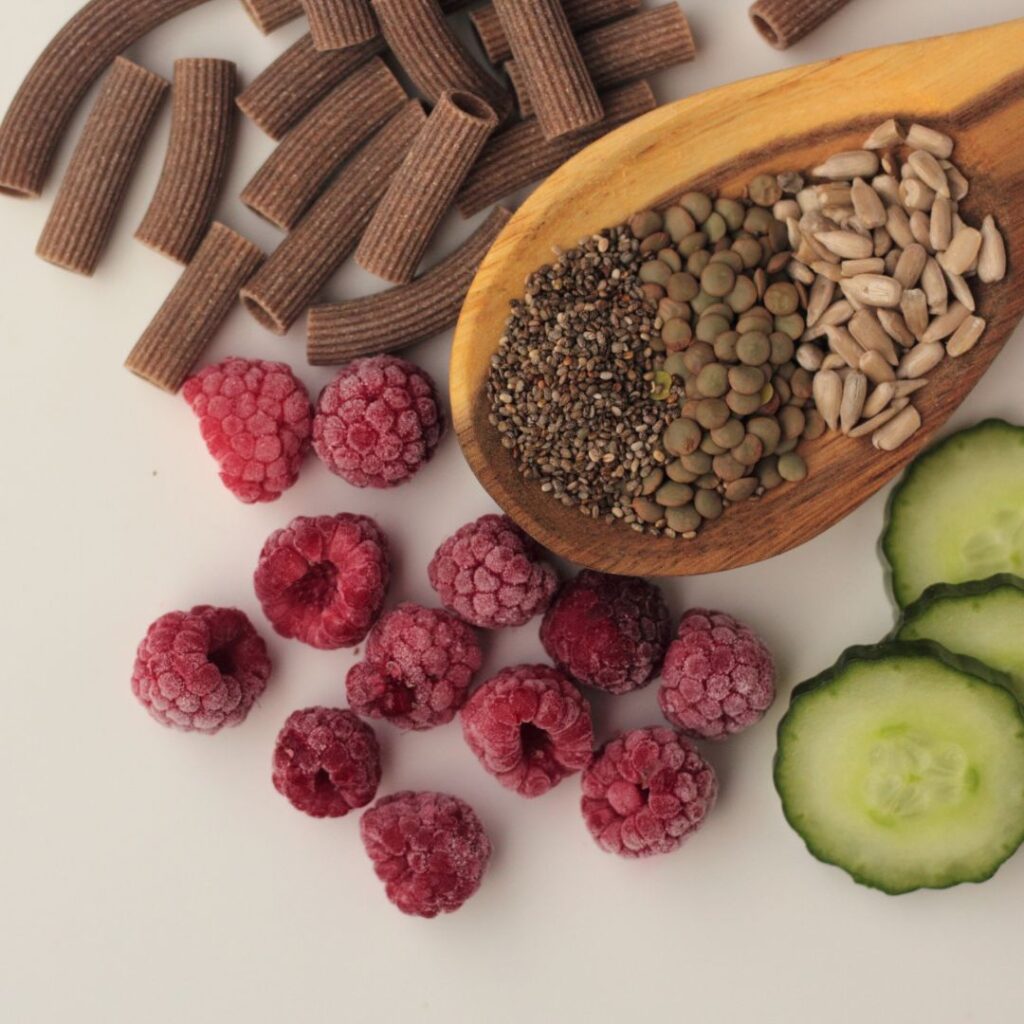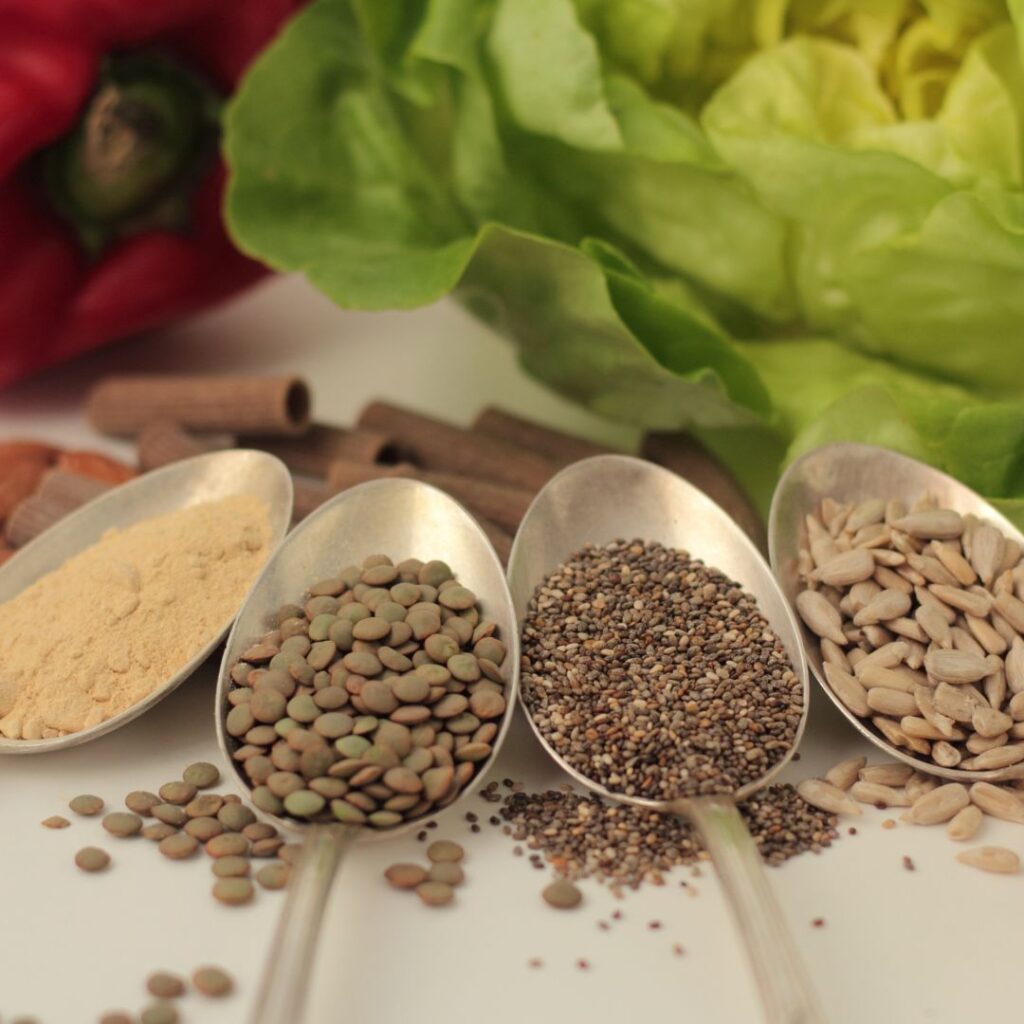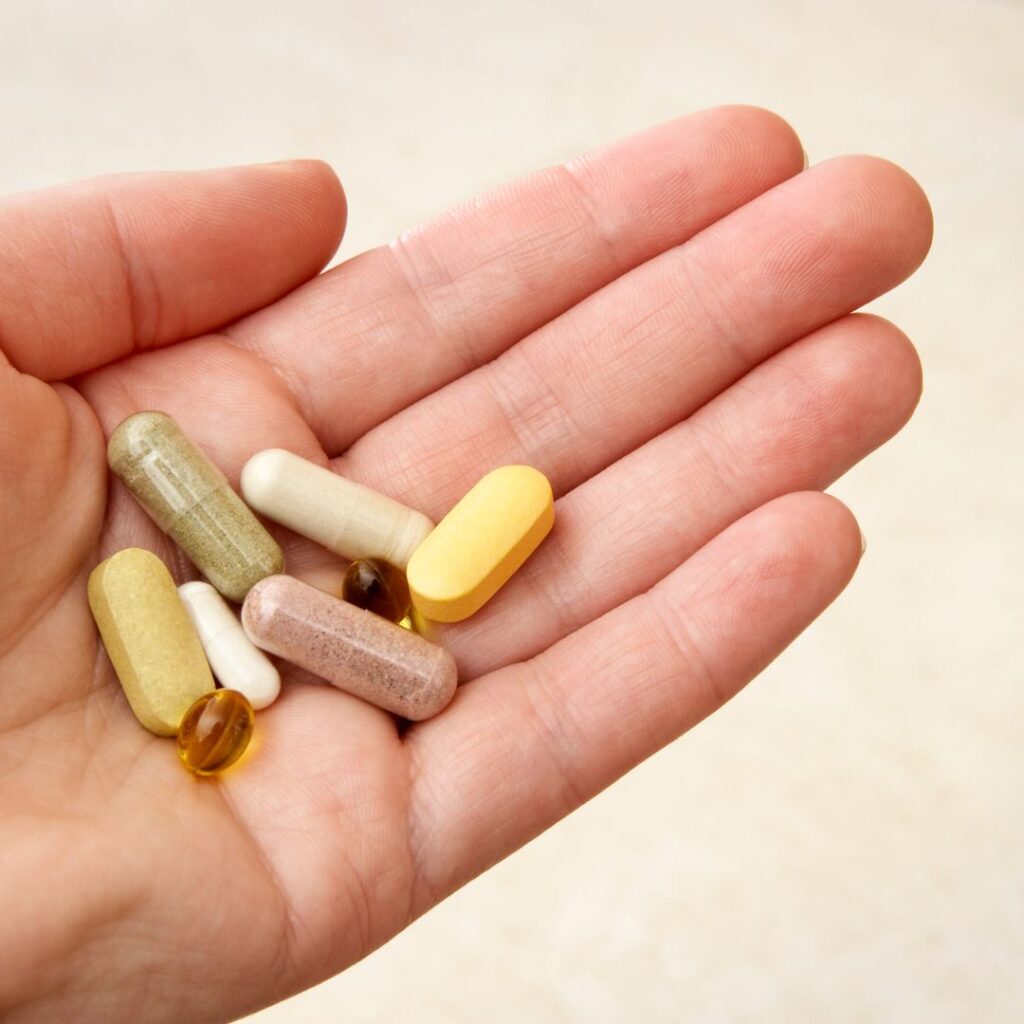Eating for PCOS: What You Need to Know (and What Actually Helps)
Polycystic Ovary Syndrome (PCOS) affects roughly 1 in 10 people assigned female at birth – and yet, it’s still misunderstood, under-diagnosed, and often mistreated. If you’ve been told to “just lose weight” or “go on the pill” without further guidance, you’re not alone. But here’s the truth: PCOS is complex, and nutrition plays a big role in managing symptoms.
This blog offers evidence-based, practical tips for managing PCOS through food, without restriction, guilt, or fads.
What is PCOS?
PCOS is a hormonal condition involving:
Irregular or absent ovulation
Elevated androgens (like testosterone)
Multiple immature follicles seen on the ovaries (they’re not true cysts)
It can lead to symptoms like acne, hair thinning, irregular periods, weight fluctuations, and insulin resistance.
Not everyone with PCOS experiences the same symptoms. It’s a spectrum condition.

Why nutrition matters for PCOS
There’s no “one-size-fits-all” PCOS diet. But certain evidence-based nutrition strategies can improve:
Insulin sensitivity
Inflammation
Digestive health
Hormonal balance
Mood and energy
What Actually Helps?

1. Prioritise Blood Sugar Balance
People with PCOS often experience insulin resistance. Managing your blood sugar helps reduce androgens, regulate cycles, and lower inflammation.
Build meals with protein + fibre + healthy fats + complex carbs
Pair carbs with fat/fibre/protein to slow glucose spikes
Avoid skipping meals – it backfires on your hormones
Evidence: A 2019 review in Nutrients supports dietary strategies that improve insulin resistance and reduce androgen levels in people with PCOS → Read the study
2. Eat More Fibre
Fibre improves digestion, supports healthy gut flora, and helps clear excess hormones via the liver and bowel. Most adults in the UK get just 18g/day of fibre – far short of the 30g recommended by the NHS and international health authorities. → NHS on Fibre
Top fibre sources for PCOS:
Legumes (chickpeas, lentils, beans)
Oats, flax, chia
Veggies like broccoli, carrots, and leafy greens
Fruit (especially with skin.


3. Don’t Cut Entire Food Groups
Despite what social media might say, cutting carbs or dairy isn’t a cure. In fact, overly restrictive eating can worsen stress and inflammation.
Include whole grains like quinoa, brown rice, buckwheat
Focus on quality of carbs rather than cutting them
Balanced eating is more sustainable than food rules
The British Dietetic Association (BDA) emphasises no “special” diet is needed: focus on regular, balanced meals. → BDA on PCOS
4. Eat More Anti-Inflammatory Foods
Low-grade inflammation is common in PCOS and contributes to insulin resistance.
Try:
Leafy greens, berries, turmeric, ginger
Omega-3s (chia, flax, walnuts, hemp)
Green tea and polyphenol-rich herbs/spices
Reduce ultra-processed foods, added sugar, and excess alcohol


5. Consider Key Supplements (If Needed)
Always test and consult before supplementing, but some can help with PCOS symptoms:
Inositol (Myo- or D-Chiro): Improves insulin sensitivity, ovulation and menstrual regularity
→ Read meta-analysisMagnesium: Calms the nervous system, supports blood sugar
Vitamin D: Commonly deficient in people with PCOS
Omega-3s: Anti-inflammatory and hormone supportiv
Beyond Nutrition: Lifestyle Shifts That Matter
Move regularly: Strength training, yoga, walking (not punishment)
Prioritise sleep: Hormone function depends on restorative rest
Manage stress: Chronic cortisol can worsen insulin resistance and disrupt cycle.
How I Can Support You
My Story
As someone who struggled with hormonal imbalance and a disordered relationship with food, studying nutrition helped me reframe nourishment. I now eat with variety, balance, and curiosity – not rules. And I help others do the same.



